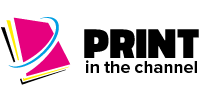Jay Kim, managing director BIXOLON Europe GmbH, explains how mobile printers can be used to print clear labels and receipts to convey essential information to customers ahead of checkout, while speeding payment processes in stores and restaurants.
The Christmas season is renowned for cheer, retail opportunity, in-store shopping, bustling shopping centres and queues. Restaurants too are busy as people often want to relax with some food and a beverage in between their shopping. But people detest queues as time is precious. They have places to go and people to see and often many gifts and goods to buy for family and friends through the Christmas period.
But at some stage many will confront a dreadful queue – and, while there are many ways to arrange a queue and make it ‘bearable’ for customers, what is often overlooked is the role that effective mobile labelling and receipt printing can play in helping to bust queues and keep customers on side. They enable faster payments and a path to profitability for retailers and restaurants alike.
Pricing transparency
It can be extremely frustrating for shoppers when browsing stores if they cannot tell the price of products they would like to buy, be it on clothing labels, supermarket shelves or labels placed directly onto products. Not having a true understanding of the price of something can result in a lost purchase. More to the point, in Europe, it has become law to provide clear pricing transparency, as compliance with the EU Omnibus Directive is vital. Therefore, labels need to be clear, robust and legible.
However, when a price update occurs and a label change is required, it means staff need to print a new label and apply it to a product. Traditionally, this is time consuming as rolls of new labels often need to be printed centrally somewhere and then taken to the products that need new labels to have them applied. This process is antiquated for many as it doesn’t offer the agility required to act fast and make label updates quickly. Many traditional labels often also come with a backing that needs to be removed too, which causes waste and potentially messy shop floors.
To solve this, mobile linerless printers are being used by progressive retailers to enable shop floor staff to take label printers with them to shelves or products that need pricing or label updates. Handheld printers are carried to shelves or products, and new labels are printed and applied immediately. The fact that labels are linerless is key because it means that the label is printed and can be applied directly to a shelf or product straightaway; and since there is no backing, there is no waste. This option is more eco-friendly as backings often take up more space on reels and generally require their own bins in order to be recycled. What is more, they speed up the process of introducing pricing markups and markdowns – something crucial through the peak season, such as when fashion goes on sale after Christmas.
Busting queues
Today mobile printers are also effective at busting queues during checkout across retail stores and on pop-up stands and restaurants. When paired with a mobile point of sale (PoS) system, payments can be accepted anywhere and receipts printed remotely. For instance, many people will queue to pay for their goods in a fashion outlet or supermarket – but, in many retailers, increasingly tablet devices are paired with a mobile printer to enable click and collect parcel collections or accept payments for goods and rapid receipt printing. However, this efficiency gain can only be enabled with the right kind of mobile PoS and mobile printer setup. It is essentially refining and improving customer experience for many on the shop floor.
This technology also has the potential to alleviate painful queues around cosmetics counters, in books stores and shoe retailers, and other related scenarios. For instance, how often have you stood in a queue and have had only one item in your basket, only to find the person ahead of you has a trolley stacked with goods to pay for. This can be immensely frustrating for shoppers.
Taking PoS and receipt printers directly to shoppers enables payments to take place where customers are located, removing the need for some queues. This approach can help alleviate those instances where large queues occur, streamlining customer experience for shoppers while retaining sales for retailers. What is more, its use case is powerful for pop-up concessions and food stalls, such as those found in Christmas markets or the walkways of shopping centres. Mobile printing enables greater sales to occur and productivity to be improved.
Streamlining orders and Natasha’s Law
Many restaurants and food and beverage outlets stand to gain from the operational efficiencies promised by mobile linerless labelling and receipt printing.
Restaurants and takeaway food and beverage operators are using linerless labelling to help them comply with Natasha’s Law. This legislation makes it mandatory for any business that produces pre-packed food for direct sale to label it with the name of the food and a full ingredients list, with allergenic ingredients emphasised within the list.
Mobile linerless printers are enabling this to take place effectively, offering businesses a solution that prints this information clearly and legibly for clientele to see clearly what the food is that they are purchasing, along with the full ingredients list, as required by the law. Many people will have increasingly noticed large coffee shop chains and takeaway restaurants using these kinds of printed labels to protect their customers
and brands.
In addition, mobile receipt printers are also enabling pop-up food and drink stall vendors to print and issue receipts remotely. Further, many modern printers can print receipts and linerless labels, meaning operations and workflows can support business and customer needs accordingly, which plays a part in enabling queue reduction, as receipts and labels are clearly and quickly printed, allowing customers to carry on with their day.
Conclusion
Over the past 10 years mobile linerless label and receipt printers have increasingly played a powerful supporting role in retail, restaurants and food and beverage scenarios. Labels are responsible for communicating prices clearly to customers. Receipts serve as legal proof that goods or services have been purchased. However, traditionally, the printing of labels and receipts had to take place at point of sale or areas where printers were located.
Mobile continues to change this in the retail and the hospitality industry. Linerless labels can be printed and applied just about anywhere in stores and pop-ups – and the same applies to receipts. All these developments are enhancing pricing transparency and contributing towards reducing queues and improving customer experience for shoppers during peak season and beyond.












